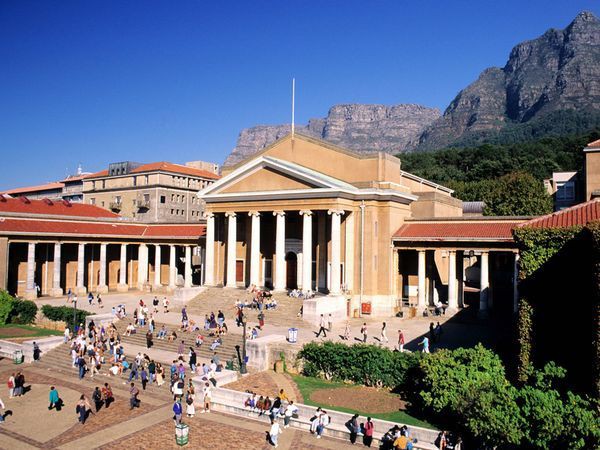It is impossible to overstate the importance of incumbent status in African politics. Given the wealth of state resources available to them, incumbents find it difficult to lose elections in African politics because in a bid to promote their campaigns, they always take advantage of government resources thereby angling the electoral field in their favor. For every political party in the world stands an opposition party, waiting to take over in the slightest mischance. This article seeks to look at the opposition parties that were able to unseat ruling parties in Africa in the face of daunting challenges.
Despite pre-election fears, the victory of the opposition New Patriotic Party (NPP) over the ruling National Democratic Congress (NDC) in Ghana’s December 2016 elections became a prologue to a peaceful transfer of power, an outcome which suggests that the advantage of incumbency in African elections may be on the wane.
It won’t be a mistake to state that the recent transfers of power in Africa have been driven by deteriorating economic conditions, opposition learning, more effective and dynamic electoral processes, and increasingly assertive voters.
When leaders follow the democratic rules of the game, as in Ghana’s and Nigeria’s most recent elections, the Republic of Congo, Uganda, and Zimbabwe, the result is instead greater repression, as presidents seek to insulate themselves from the rising risk of defeat. The factors that account for recent opposition victories has in a way help to explain an upsurge in attacks on civil liberties across the continent.
Let’s take a look at some opposition parties that defeated the incumbents in Africa
The New Patriotic Party (NPP): December 7th, 2016 marked the end of two historic Presidential campaigns where President John Mahama, the presidential candidate of National Democratic Congress (NDC) and Nana Akufo-Addo of The New Patriotic Party (NPP) fought viciously in hopes of leading the nation.
Ghanaians cast their votes and the winner was declared. NPP’s Nana Addo defeated NDC’s Mahama, the incumbent with 53.85% of votes cast. But, it seemed like a large number of Ghanaians made their choice based on who was the best of the worst on election day.
The New Patriotic Party (NPP) Presidential Candidate, Nana Akufo-Addo, is the current president of the Republic of Ghana. The Electoral Commission (EC) Chairperson, Charlotte Osei, declared Nana Akufo-Addo, the President-elect, making him the fifth president of Ghana’s fourth republic.
Nana Addo, aged 72, secured the Presidency at the third time of asking, beating the incumbent, President John Mahama. President Mahama becames the first incumbent to lose a presidential election since Ghana returned to multi-party democracy in 1992.
The Rally of the Republicans (French: Rassemblement des Républicains; abbreviated RDR): Alassane Ouattara has been serving as President of Ivory Coast since 4 December 2010 after UN and French-backed forces support him against Laurent Gbagbo.
Laurent Gbagbo is a classically educated academic now widely regarded as a leader who was willing to destroy his country, Côte d’Ivoire, by refusing to accept defeat at the ballot box.
Born in 1942 in Dimbokro, in Ivory Coast, Alassane Ouattara joined the International Monetary Fund in 1968 and becomes its Deputy Director General. In the meantime, he furthers his commitment to Ivory Coast throughout his liberal political party, the “Rassemblement des Républicains” (RDR).
All Progressives Congress (APC): Nigerians are so used to the idea that an incumbent should win presidential elections that President Goodluck Jonathan’s failure to beat General Muhammadu Buhari needs some explaining.
On 31 March 2015, Jonathan conceded the election to challenger Muhammadu Buhari, who was sworn in to succeed him on 29 May 2015.
The opposition candidate, Muhammadu Buhari won the presidential election by more than 2.5 million votes. Incumbent Goodluck Jonathan conceded defeat on 31 March, before the results from all 36 states had been announced. The election marked the first time an incumbent president had lost re-election in Nigeria.
Alliance for the Republic Party (ARP): In 2012, Abdoulaye Wade conceded defeat to challenger Mack Sally as initial results in the presidential run-off election showed the opposition candidate.
President Macky Sall was elected President of the National Assembly with 143 votes cast out of the 146 voting members.
Wade was President of Senegal from 2000 to 2012. He is also the Secretary-General of the Senegalse Democratic Party (PDS) and has led the party since it was founded in 1974. As a long-time opposition leader, he ran for President four times, beginning in 1978, before he was elected in 2000. He won re-election in 2007 with a majority in the first round, but in 2012, Sall defeated him.
Democratic Progressive Party (DPP): In African politics, it’s hard for incumbents to lose an election given all the state resources at their disposal. While bookmakers believed the eleven-horse race would give Joyce Banda of the People’s Party hot competition very few expected her to lose after just over two years in power. She was expected to stay around a bit longer as the second woman to become president of an African country after Liberia’s Ellen Johnson Sirleaf.
Arthur Peter Mutharika was the President of Malawi from May 2014 to June 2020. Mutharika has worked in the field of international justice, specializing in international economic law, international law and comparative constitutional law.
Mutharika took 36.4 percent of the votes against Mrs. Banda’s 20.2 percent, according to the electoral commission.
Previously touted as transparent, Malawi’s election proved chaotic amid polling day havoc and vote counting anomalies. Incumbent Joyce Banda cried foul over preliminary results, but an electoral commission recount upheld opposition leader Peter Mutharika’s victory.
National People’s Party (NPP): With the total poll of 457, 519 votes, President Adama Barrow defeated his closest rival, Ousainou Darboe, of the United Democratic Party (UDP), who garnered 238, 253 votes.
There was also Yahya Jammeh, longtime ruler of The Gambia, who lost the presidential election to the opposition leader, according to the electoral commission. Adama Barrow’s victory in the West African country brought to an end to Jammeh’s 22-year rule.
Jammeh, who came to power in 1994 as a 29-year-old army officer following a military coup, had won four previous polls. Barrow received 263,515 votes while Jammeh won 212,099, Alieu Momarr Njai, the electoral commission head, said in the capital Banjul.
As several countries continue to hold democratic elections in Africa, the stage is set to seen more parties in the opposition defeat the incumbents. The democracy is a game of numbers, nothing should seem strange to African when the party in power loses to the opposition, what matters is that good governance should be properly administer to the people because that is the least of what the government of the day owes the electorate.


